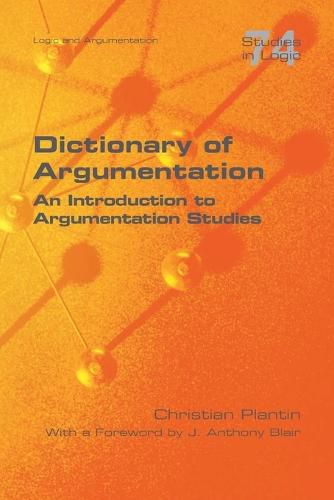Readings Newsletter
Become a Readings Member to make your shopping experience even easier.
Sign in or sign up for free!
You’re not far away from qualifying for FREE standard shipping within Australia
You’ve qualified for FREE standard shipping within Australia
The cart is loading…






This title is printed to order. This book may have been self-published. If so, we cannot guarantee the quality of the content. In the main most books will have gone through the editing process however some may not. We therefore suggest that you be aware of this before ordering this book. If in doubt check either the author or publisher’s details as we are unable to accept any returns unless they are faulty. Please contact us if you have any questions.
Contemporary argumentation studies continue a tradition founded by Aristotle, Cicero, Quintilian and others. Since the end of the Second World War, they have been vigorously taken over and reoriented by different schools of thought, stressing their link to the renovated disciplines of logic, dialectic, rhetoric or grammar. Anscombre, Blair, Ducrot, van Eemeren, Grize, Grootendorst, Hamblin, Johnson, Olbrechts-Tyteca, Perelman, Toulmin, Walton, Woods, and many others, have reconceptualized the field, reconnected it to contemporary scholarship and opened up rigorous and innovative avenues of research. At the turn of the century, argumentation in science education and argumentation about socio-scientific issues emerged as new fields within the larger area of argumentation studies. Within this diverse and challenging context, this comprehensive Dictionary makes a significant contribution to the construction of a common culture and shared vocabulary of argumentation. Argumentation is approached as an all-pervasive linguistic-cognitive activity, and argumentation studies are posited as a multidisciplinary field. This Dictionary of Argumentation defines 301 concepts. The 223 main entries define, comment upon, and illustrate a specific concept or a set of interrelated concepts. The 78 secondary entries refer to the relevant main entry (-ies). The relationships between the entries are marked by a system of cross-references, which strengthen the conceptual coherence of the Dictionary as a whole. This is the first dictionary of its kind to be published in English.
$9.00 standard shipping within Australia
FREE standard shipping within Australia for orders over $100.00
Express & International shipping calculated at checkout
This title is printed to order. This book may have been self-published. If so, we cannot guarantee the quality of the content. In the main most books will have gone through the editing process however some may not. We therefore suggest that you be aware of this before ordering this book. If in doubt check either the author or publisher’s details as we are unable to accept any returns unless they are faulty. Please contact us if you have any questions.
Contemporary argumentation studies continue a tradition founded by Aristotle, Cicero, Quintilian and others. Since the end of the Second World War, they have been vigorously taken over and reoriented by different schools of thought, stressing their link to the renovated disciplines of logic, dialectic, rhetoric or grammar. Anscombre, Blair, Ducrot, van Eemeren, Grize, Grootendorst, Hamblin, Johnson, Olbrechts-Tyteca, Perelman, Toulmin, Walton, Woods, and many others, have reconceptualized the field, reconnected it to contemporary scholarship and opened up rigorous and innovative avenues of research. At the turn of the century, argumentation in science education and argumentation about socio-scientific issues emerged as new fields within the larger area of argumentation studies. Within this diverse and challenging context, this comprehensive Dictionary makes a significant contribution to the construction of a common culture and shared vocabulary of argumentation. Argumentation is approached as an all-pervasive linguistic-cognitive activity, and argumentation studies are posited as a multidisciplinary field. This Dictionary of Argumentation defines 301 concepts. The 223 main entries define, comment upon, and illustrate a specific concept or a set of interrelated concepts. The 78 secondary entries refer to the relevant main entry (-ies). The relationships between the entries are marked by a system of cross-references, which strengthen the conceptual coherence of the Dictionary as a whole. This is the first dictionary of its kind to be published in English.